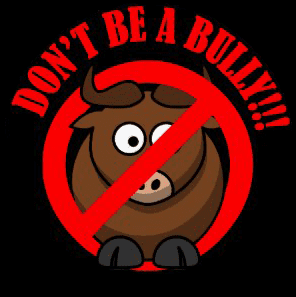Should my child come into school? Medical advice news
We are getting a lot of calls from worried parents about medical symptoms of coronavirus – unfortunately we can only give you the same advice as is found on the NHS website, as we are not medically trained.
If you are still concerned after reading this information, please contact 111 and they will tell you what to do.
We have taken the following advice from the NHS website which gives details on the symptoms of coronavirus in children and what to do if you think your child is displaying them. Please note that any child who is not at school should remain in isolation at home along with the rest of the household until tests have been carried out.
Please remember to follow government advice about social distancing and note that from today new rules have been introduced which limit the number of people meeting to 6. This applies to both indoors and outdoors and to all ages.
Further advice can be found at:
Check if you or your child has coronavirus symptoms
If you have any of the main symptoms of coronavirus (COVID-19), get a test as soon as possible. Stay at home until you get the result.
Main symptoms
The main symptoms of coronavirus are:
• a high temperature – this means you feel hot to touch on your chest or back (you do not need to measure your temperature)
• a new, continuous cough – this means coughing a lot for more than an hour, or 3 or more coughing episodes in 24 hours (if you usually have a cough, it may be worse than usual)
• a loss or change to your sense of smell or taste – this means you’ve noticed you cannot smell or taste anything, or things smell or taste different to normal
Most people with coronavirus have at least 1 of these symptoms.
What to do if you have symptoms
If you have any of the main symptoms of coronavirus:
1. Get a test to check if you have coronavirus as soon as possible.
2. Stay at home and do not have visitors until you get your test result – only leave your home to have a test.
Anyone you live with, and anyone in your support bubble, must also stay at home until you get your result.
What is a support bubble?
A support bubble is where someone who lives alone (or just with their children) can meet people from 1 other household.
Get a test to check if you have coronavirus
Urgent advice: Use the NHS 111 online coronavirus service if:
• you’re worried about your symptoms
• you’re not sure what to do
Use the NHS 111 online coronavirus service
Call 111 if you cannot get help online. Do not go to places like a GP surgery, hospital or pharmacy.
Babies and children
Call 111 if you’re worried about a baby or child under 5.
If your child seems very unwell, is getting worse or you think there’s something seriously wrong, call 999.
Do not delay getting help if you’re worried. Trust your instincts.
Get more advice about coronavirus in children.
When to self-isolate and what to do
What is self-isolation?
Self-isolation is when you do not leave your home because you have or might have coronavirus (COVID-19).
This helps stop the virus spreading to other people.
Self-isolation is different to:
• social distancing – general advice for everyone to avoid close contact with other people
• shielding – advice for people at high risk from coronavirus
When to self-isolate
You must self-isolate immediately if:
• you have any symptoms of coronavirus (a high temperature, a new, continuous cough or a loss or change to your sense of smell or taste)
• you’ve tested positive for coronavirus – this means you have coronavirus
• you live with someone who has symptoms or tested positive
• someone in your support bubble has symptoms or tested positive
• you’re told to self-isolate by NHS Test and Trace
• you arrive in the UK from a country with a high coronavirus risk – see http://GOV.UK/ how to self-isolate when you travel to the UK
Information:
If you think you’ve been in contact with someone who has coronavirus, but you do not have symptoms and have not been told to self-isolate, continue to follow social distancing advice.
How to self-isolate
You must not leave your home if you’re self-isolating.
Don’t
• do not go to work, school or public places – work from home if you can
• do not go on public transport or use taxis
• do not go out to get food and medicine – order it online or by phone, or ask someone to bring it to your home
• do not have visitors in your home, including friends and family – except for people providing essential care
• do not go out to exercise – exercise at home or in your garden, if you have one
When to get a test
Get a test as soon as possible if you have any symptoms of coronavirus.
The symptoms are:
• a high temperature
• a new, continuous cough
• a loss or change to your sense of smell or taste
The test needs to be done in the first 5 days of having symptoms.
You do not need to get a test if you have no symptoms or if you have different symptoms.
Get a test to check if you have coronavirus
Tell people you’ve been in close contact with that you have symptoms
You may want to tell people you’ve been in close contact with in the past 48 hours that you might have coronavirus.
What does close contact mean?
Examples of close contact include:
• close face to face contact (under 1 metre) for any length of time – including talking to them or coughing on them
• being within 1 to 2 metres of each other for more than 15 minutes – including travelling in a small vehicle
• spending lots of time in your home, such as cleaning it
They do not need to self-isolate unless they’re contacted by the NHS Test and Trace service. But they should take extra care to follow social distancing advice, including washing their hands often.
If they get any coronavirus symptoms, they must self-isolate and get a coronavirus test as soon as possible.
How long to self-isolate
If you have symptoms or have tested positive for coronavirus, you’ll usually need to self-isolate for at least 10 days.
You’ll usually need to self-isolate for 14 days if:
• someone you live with has symptoms or tested positive
• someone in your support bubble has symptoms or tested positive
• you’ve been told to self-isolate by NHS Test and Trace
Read more about how long to self-isolate.
Information:
Help and support while you’re staying at home
While you’re self-isolating:
• you can get help with everyday tasks, like collecting shopping or medicines, from an NHS volunteer
• you might be able to get sick pay or other types of financial support if you’re not able to work
Find out about help and financial support while you’re self-isolating.

NHS.UK
Coronavirus (COVID-19)







